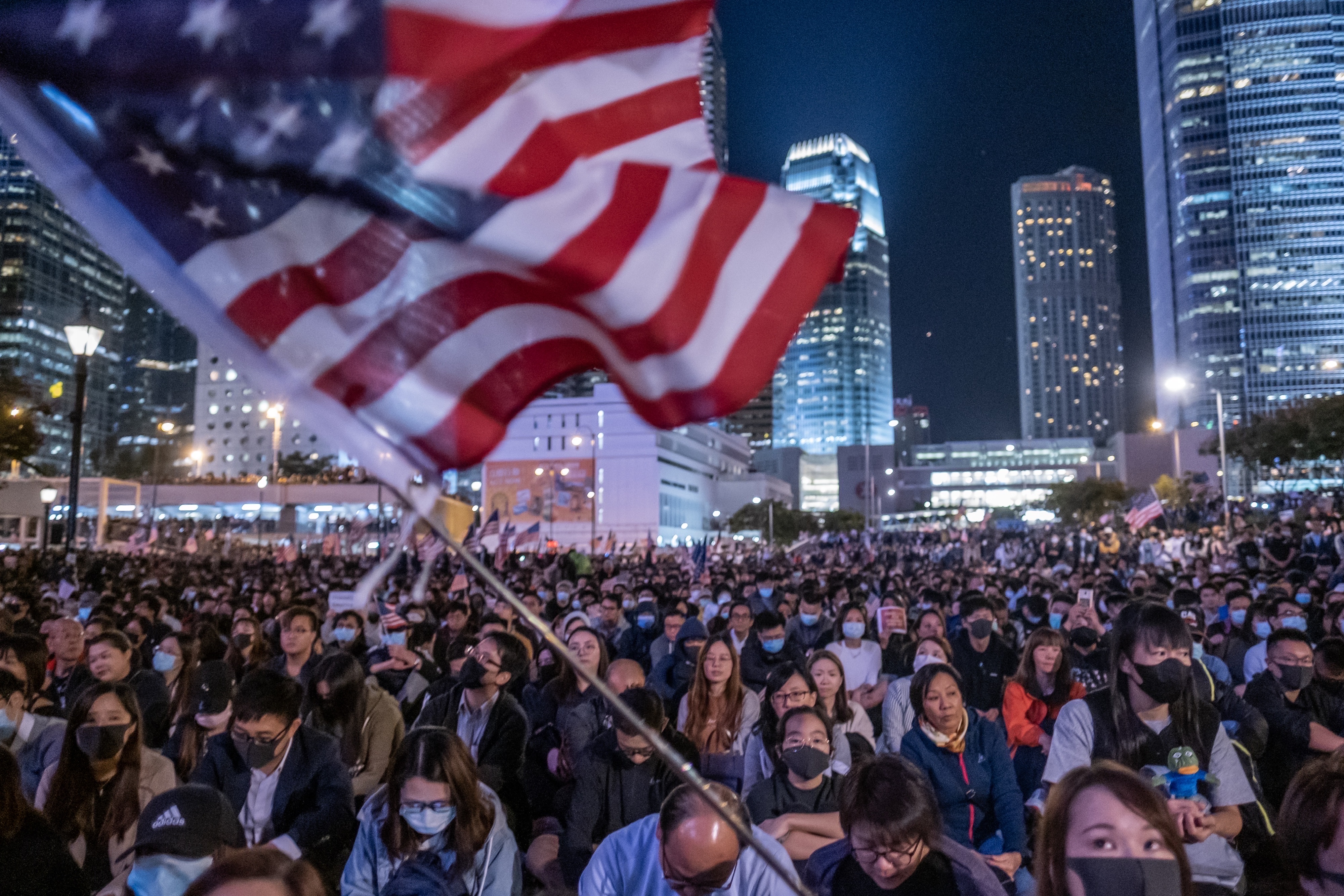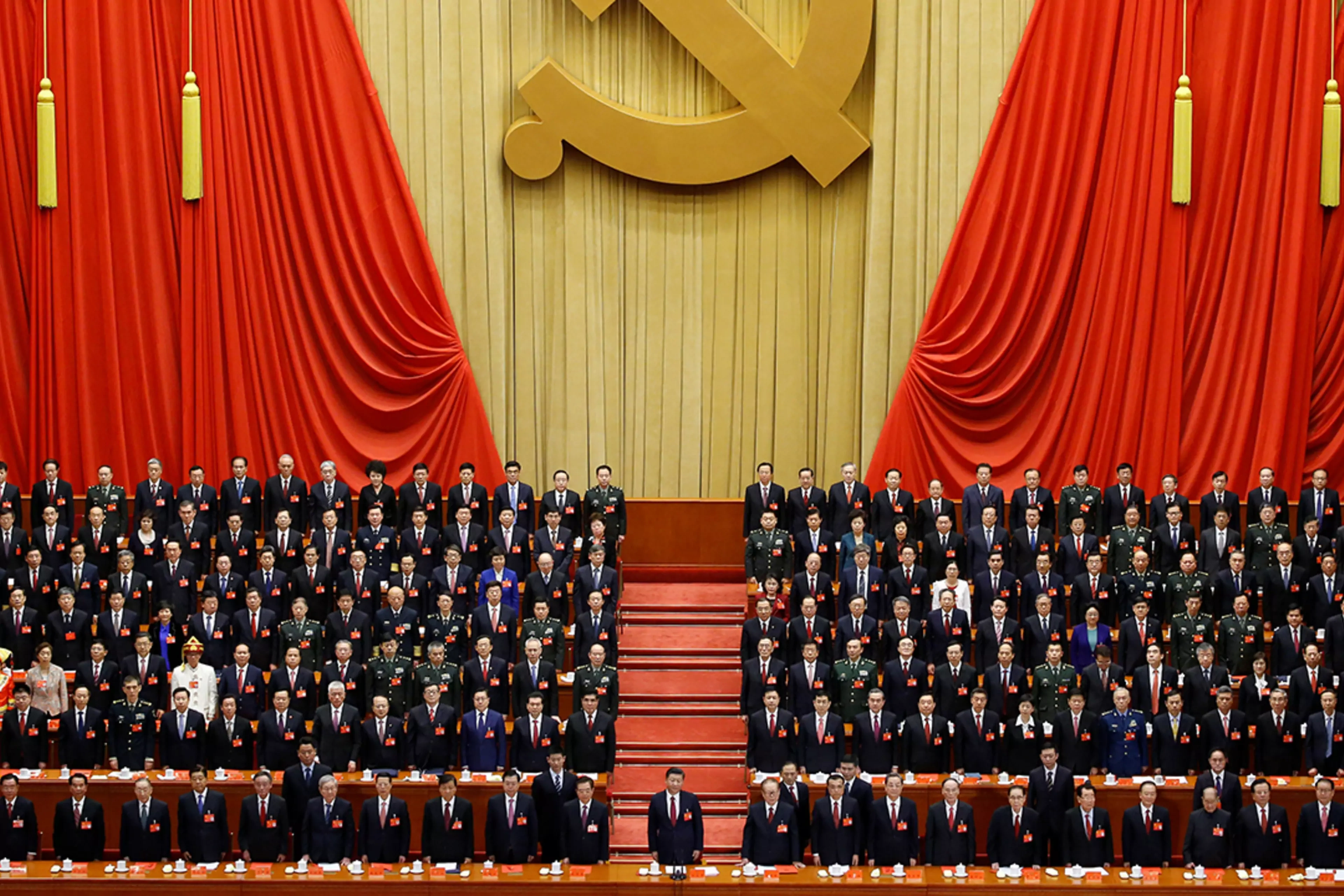
“No reasonable person can assert today that Hong Kong maintains a high degree of autonomy from China, given facts on the ground,” Pompeo said in a statement. “The United States stands with the people of Hong Kong as they struggle against the [Chinese Communist Party’s] increasing denial of the autonomy that they were promised.”
The Hong Kong Human Rights and Democracy Act—passed in November 2019 following months of protests in Hong Kong—requires the State Department to complete an annual assessment to determine if Hong Kong remains sufficiently different from China. That assessment is needed to justify Hong Kong’s unique treatment under U.S. law.

Under the terms of the Hong Kong Policy Act of 1992, Hong Kong’s special status means Washington treats it as distinct from the rest of China when it comes to matters like trade and economic relations. Although the U.S. hasn’t yet set out what actions it will take following Pompeo’s announcement, the options include imposing immigration restrictions, export controls, and tariffs as well as sanctions on officials and individuals deemed to be aiding China in its encroachment on Hong Kong’s freedoms.
Eric Lai, the vice convener of the pro-democracy group the Civil Human Rights Front (CHRF), said Pompeo’s announcement meant the international community no longer believed Hong Kong’s rule of law and judicial independence were reliable safeguards against Beijing. He told TIME that the Chinese government would “pay a substantive price” for its actions in Hong Kong.
“The Hong Kong government and the mainland government have destroyed ‘one country, two systems,’” pro-democracy lawmaker Wu Chi-Wai told TIME, referring to the political formula under which Hong Kong was promised significant freedoms under Chinese sovereignty. “It is a sad result…It won’t do any good to Hong Kong people, but it reflects the situation that Hong Kong is no longer a place that can honor ‘one country, two systems.’”
Speaking to the media via a teleconference, David R. Stilwell, assistant secretary for East Asian and Pacific affairs, said that the U.S. will do its best “to ensure the people of Hong Kong are not adversely affected to the best we can.”
During a press conference on Thursday morning, pro-democracy activist Joshua Wong said that he didn’t think ordinary citizens would be impacted. “But I think for the ones serving the interests of Beijing, acting as the loyalists of the communist regime, of course they might face some of the results that might be negative for themselves. That’s the damage that they’ve done and the result that they need to bear.”
Jimmy Lai, a 71-year-old media tycoon who is among a group of prominent pro-democracy leaders in Hong Kong facing charges for their roles in the mass demonstrations that paralyzed much of the city throughout the second half of 2019, thanked Pompeo on Twitter. “The world will be a much better and peaceful place when #CCPChina is contained and #Hongkong is free,” he said.
Thank you @SecPompeo for standing with us #HKers. The world will be a much better and peaceful place when #CCPChina is contained and Hong kong is free. https://t.co/qccuiFw5SX— Jimmy Lai (@JimmyLaiApple) May 27, 2020
China has repeatedly warned the U.S. not to interfere in what it deems its internal affairs, and experts say that it’s unlikely that any actions the U.S. takes will change Beijing’s plans to implement the national security law.
“The Communist Party has been moving steadily down the road toward tightening control over Hong Kong for years now, and Xi Jinping is determined to project an image of himself as a strongman leader who can stand up to pressure from foreign powers,” Jeffrey Wasserstrom, historian and author of Vigil: Hong Kong on the Brink, told TIME.

“I don’t think that China will change its mind,” said Jean-Pierre Cabestan, a political-science professor at Hong Kong Baptist University. “There is not much room for changing the gist of the law.”
Pro-democracy politician Eddie Chu told TIME that the revocation of Hong Kong’s autonomous status alone won’t be enough to spur Beijing into action. “I think if the U.S. really wants to push back [against] China on this issue of the national security law, it needs to include Taiwan in the game,” he says. “The only thing that can frighten [Chinese President Xi Jinping] is to warn about reestablishing diplomatic relationship with [Taiwan].”
Source: Time





